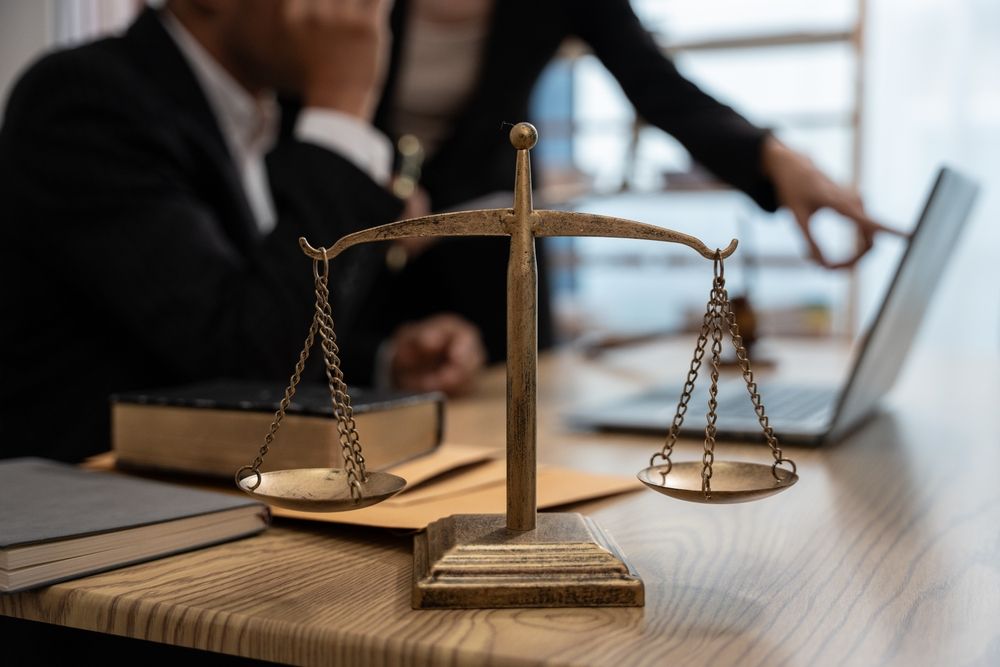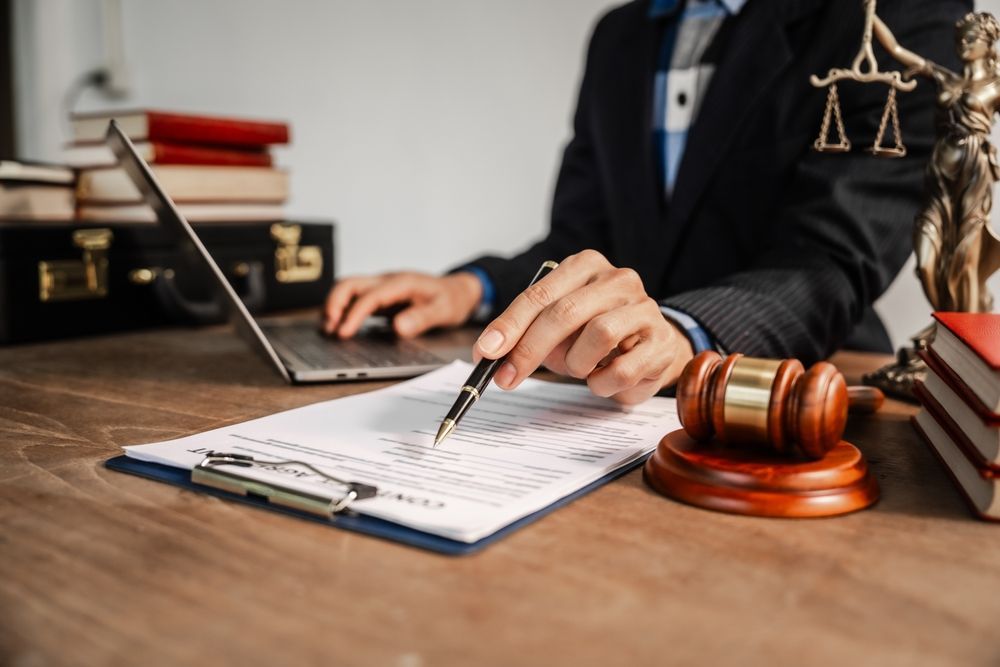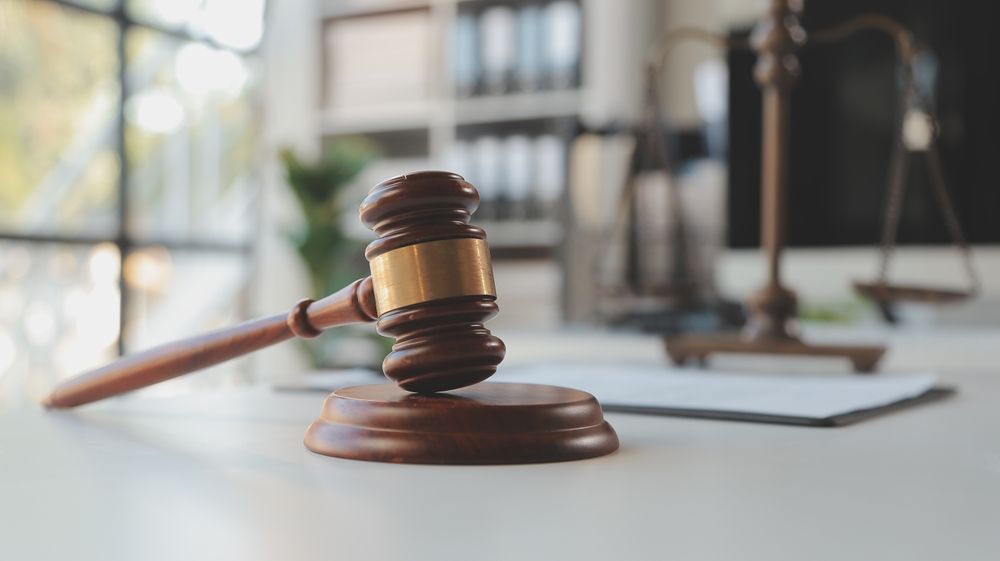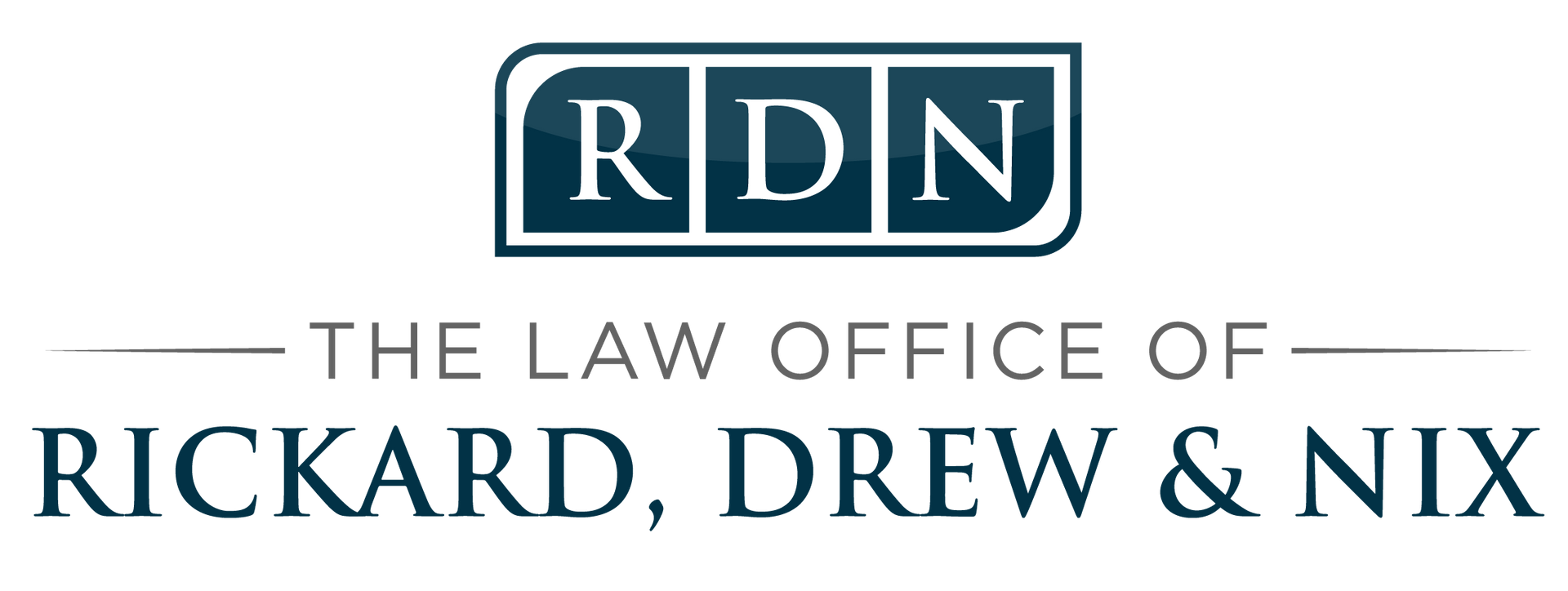Key Errors to Avoid in Atlanta Car Accident Claims Process
When you've just been through a jarring experience like a car collision, it's understandable that you aren't thinking logically or proactively. A moment ago, you were driving down the road without a care, and suddenly, you're sitting in a damaged car, possibly injured. But at the same time, it's absolutely critical that you take certain specific steps to protect yourself legally and financially. Hiring a legal specialist, like an Atlanta car accident attorney, can mean the difference between full recovery and years of trouble.
The process of pursuing a car accident claim in Atlanta can be both complex and emotionally draining, especially when compounded by common errors. Victims must be aware of these pitfalls to secure the maximum compensation for damages, injuries, and potential punitive damages. As personal injury claims hinge on various factors such as timely medical attention, accurate documentation, proper legal guidance, and thorough communication with insurers, avoiding mistakes is essential. Mistakes like delaying a medical evaluation or providing an incomplete account of the incident can significantly weaken a claim.
This article, written from the perspective of an experienced attorney, breaks down the top five mistakes people make after car accidents and offers actionable strategies to navigate the claims process effectively. Using a blend of expert testimony, peer-reviewed studies, and real-world examples, this discussion serves as a comprehensive guide for accident victims seeking justice, proper compensation, and a clearer understanding of their rights in personal injury cases from issues like distracted driving collisions, aggressive driving, or incidents involving driving under the influence. Now, we delve into each mistake in detail, starting with the critical error of skipping prompt medical attention following an accident.
Mistake 1: Skipping Prompt Medical Attention Following an Accident
Failing to obtain immediate medical attention after an accident is one of the gravest mistakes that can negatively impact both the health recovery process and the strength of an accident claim. Prompt evaluation protects life and health but also solidifies the causal link between the accident and injuries. The first few hours and days following a collision are crucial. Medical evaluations performed during this period document injuries such as whiplash, internal bleeding, and soft tissue damage, which might not be initially evident. This documentation is especially significant when dealing with injuries like back pain, nerve damage, or traumatic brain injuries that might later necessitate treatments such as physical therapy.
Impact on Claim Strength and Recovery Benefits
Immediate medical documentation creates a strong evidentiary foundation that demonstrates the severity of the injuries sustained. Studies, such as one published in the Journal of Trauma (Smith et al., 2021), highlight that patients who received immediate care were 35% more likely to have verifiable injury records that support their claims in court. This direct link between the accident and the injuries decreases the insurance company’s ability to dispute the cause of the injury and substantially increases recovery benefits. A robust medical record not only supports the claim for medical expenses but also enhances claims for pain and suffering and, in some cases, punitive damages when gross negligence can be proven.
For example, if a victim delays seeking treatment and later presents with worsened back pain or nerve damage, the lapse may cast doubts on the credibility of their injury assertions. Insurers and opposing legal teams often exploit such delays by arguing that the injuries were minor or preexisting. Moreover, insurance companies routinely require documented evidence from a physician not only to validate claims but also as a benchmark for imposing negotiated settlement amounts. Thus, prompt medical care is imperative so every element of the injury, from initial symptoms to long-term consequences, is well recorded.
Best Practices for Timely Medical Evaluation
Best practices include scheduling an immediate evaluation, even if the injury seems minor, and continuously monitoring and updating medical records. Victims should follow these steps: 1. Visit an Emergency Room or Urgent Care Center: Always get evaluated, even if injuries appear moderate. This provides necessary treatment and has an official record. 2. Obtain Detailed Written Records: Ask for comprehensive documentation, including X-rays, prescription details, and diagnostic test results, which are essential when presenting your injury case. 3. Schedule Follow-Up Appointments: Some injuries develop or worsen over time. Regular check-ups can provide updated evidence of persistent injuries affecting long-term treatment, such as back pain requiring physical therapy. 4. Maintain a Personal Health Journal: Document daily symptoms, medication intake, and any missed activities or work. This self-report can serve as supplemental evidence. 5. Engage Specialists When Necessary: In cases of severe trauma, consult orthopedists or neurologists immediately. Their expert opinions may serve as a critical component during negotiations with insurers.
Adhering to these practices and promptly seeking medical evaluation does not just facilitate a quicker recovery; it strengthens the personal injury claim, reinforces the duty of care owed by the at-fault party, and ultimately leads to a better recovery outcome.
Key Takeaways: - Early medical attention provides critical evidence linking the accident to your injuries. - Documenting injuries from the outset improves the credibility of your personal injury claim. - Following robust follow-up practices can support long-term claims for treatment, pain and suffering, and punitive damages.
Mistake 2: Failing to Collect Comprehensive Accident Evidence
After an accident, one of the most common mistakes is neglecting to collect comprehensive evidence at the scene. This failure can severely undermine a car accident claim because evidence is crucial to establishing liability, determining fault, and supporting the accuracy of submitted claims. In personal injury cases, especially those that involve distracting factors like dashcam footage or witness testimonies, the quality and quantity of evidence collected can influence the entire outcome of the case. Without proper evidence, the narrative provided by the victim may be challenged, weakening claims related to accident claims that involve negligent driving, texting while driving, or even aggressive driving behavior.
Capturing Photographs and Witness Contact Details
One must immediately collect visual evidence and accurate contact details from all witnesses. Photographs of the accident scene, including vehicle damage, skid marks, surrounding road conditions, and traffic signals, are essential components of the evidence package. A peer-reviewed study in the Accident Analysis & Prevention Journal (Lee et al., 2020) found that cases with substantial photographic and video evidence had a 40% higher success rate in litigation. Additionally, collect names, phone numbers, and statements from bystanders whose testimonies can corroborate your version of events. This is particularly important when police reports may be ambiguous or when the incident involves claims such as negligent or distracted driving.
A detailed checklist to adhere to includes: 1. Photographing Vehicle Damage: Capture images of all affected vehicles from multiple angles. 2. Documenting Road Conditions: Note any factors like poor lighting, slippery surfaces, or missing signage. 3. Recording the Scene Environment: Look for relevant signs, signals, and any road hazards. 4. Securing Witness Information: Write down full names, an account of what transpired, and contact numbers. 5. Collecting Dashcam and Surveillance Footage: Secure any dashcam recordings or nearby surveillance footage that provide an uninterrupted incident record.
Recording Precise Incident Details on Scene
Accurate and contemporaneous recording of incident details plays a vital role in forming a comprehensive statement regarding the accident. Writing down the sequence of events, including timings, vehicle speeds (if any digital readouts are available), and the precise location, gives all parties an objective record of the conditions at the time of the incident. This written account should include the weather conditions, road visibility, and any potential contributing factors (like a malfunctioning stop sign or the presence of a police officer nearby) that may support a personal injury claim.
An essential aspect of precise recording is consistency. The more detailed the evidence collected at the scene, the less room there is for disputes later about the actual sequence of events. For instance, if a victim can prove that their vehicle came to a stop after being rear-ended due to fog or a malfunctioning traffic light, claims related to faulty driving can be more accurately scrutinized. Detailed evidence collection also supports claims for additional losses, such as property damage or expenses due to work absenteeism, thereby strengthening the overall accident claim.
Key Takeaways: - Comprehensive, detailed evidence collection at the scene significantly enhances the credibility of your claim. - Photographs, videos, and accurate witness details are crucial to verify the incident details. - Detailed and consistent documentation can prevent insurers from disputing the context of the accident.
Mistake 3: Delaying Essential Incident Notifications
One of the major errors in the aftermath of a car accident is the delay in notifying essential entities such as the insurance company and local authorities. Immediate notifications fulfill legal requirements and preserve available evidence and the victim’s credibility intact. Delays, on the other hand, offer an opening for insurers to take advantage by diminishing claims or disputing the sequence of events. Timely reporting lays a solid groundwork for establishing a connection between the accident and the resulting injuries or damages, which is vital when pursuing claims for punitive damages or compensatory relief.
Informing Your Insurance Provider Accurately
It is critical to notify your insurance provider as soon as possible following an accident. Most insurance policies contain clauses that require timely reporting to avoid possible denial of a claim. Notifying your insurer without delay creates an official record of the accident and prevents the loss of critical evidence. Insurance companies tend to scrutinize the timeline of an accident claim, and any gap between the accident and notification may be used to argue that the injury was not severe or related to the incident. For proper notification, remember the following: 1. Immediate Call to Your Insurer: Report the accident via phone or through your insurer's mobile app. 2. Accurate Reporting: Provide a clear, factual account of the incident, including details such as location, time, weather, and parties involved. 3. Documenting the Notification: Keep records of all communications, including emails, call logs, and confirmation numbers. 4. Follow Up in Writing: Send written confirmation of the reported incident so there is a paper trail. 5. Secure Confirmation from Your Provider: Ask for acknowledgment of receipt from the insurance company for further support in your claim.
Accurate notification is especially important if claims of injuries such as back pain, soft tissue injuries, or nerve damage are involved. Insurers might examine the timeline to see if injuries presented later bear a legitimate connection to the reported incident. A well-documented notification process supports claims for medical expenses and further strengthens assertions for punitive damages in cases of gross negligence.
Reporting the Incident to Local Authorities Quickly
In parallel with informing your insurer, contacting local law enforcement is vital. A police report provides an objective and third-party account of the incident, which is often essential when settling accident claims. Police reports routinely include details that the involved parties might have overlooked, such as skid mark analysis, witness statements, and sometimes dashcam footage from patrol vehicles. These reports not only support injury cases but also add significant weight to a claim when determining fault, particularly in situations involving distracted or aggressive driving.
Steps for effective reporting include: 1. Dialing 911 Immediately: Call the authorities without delay to have an official record made. 2. Cooperating Fully: Provide accurate and comprehensive details to law enforcement on the scene. 3. Obtaining a Copy of the Report: Request a copy of the police report for your records, a step crucial in subsequent negotiations. 4. Identifying All Parties Involved: Confirm the report records all vehicle numbers, driver details, and witness information. 5. Preserving Evidence Gathered by Authorities: Align with the police on any additional evidence or statements that may be recorded.
A timely report to local authorities minimizes the risk of misrepresenting facts and assists the insurance company during its investigation. It solidifies the sequence of events, thereby reducing chances for disputes about fault or legal liability, while also documenting immediate responses that influence compensation negotiations. Courts and insurance companies pay close attention to dates and timelines, making prompt reporting a crucial factor in the strength of an accident claim.
Key Takeaways: - Immediate notification to both your insurance provider and local authorities is not optional—it is vital. - Timeliness in reporting preserves the integrity of evidence and supports a fact-based account of the accident. - A well-documented notification process forms a robust defensive barrier against claims disputing the causal relationship between the accident and injuries.
Mistake 4: Admitting Fault or Sharing Incomplete Incident Information
Another prevalent mistake that can jeopardize the outcome of a car accident claim is the inadvertent admission of fault or the provision of incomplete information about the accident. In the heat of the moment following an incident, victims might feel pressured to make statements that can later be used against them in legal proceedings or insurance negotiations. Such admissions, even if made casually, can critically undermine a claim for personal injury compensation.
Formulating Accurate Statements Without Self-Incrimination
It is imperative to refrain from making premature remarks that might suggest responsibility for the accident. Even if a victim is unsure of all the circumstances, it is advisable to keep statements factual and limited. The first sentence you utter can often become a cornerstone of your claim. Rather than providing your interpretation of events, it is recommended to document only the facts as they were observed; this includes details such as the time, location, weather, and what each party was doing at the time of the incident.
To avoid self-incrimination while formulating your statement, consider the following guidelines: 1. Stick to Factual Observations: Describe only what you directly witnessed. 2. Avoid Speculation: Do not guess or assume causes such as driver distraction or mechanical failures. 3. Use Precise Language: Avoid emotionally charged phrases; stick to verifiable observations like “my vehicle was struck on the rear.” 4. Consult with Your Attorney: An initial consultation with an experienced Atlanta personal injury attorney can help format your statement correctly. 5. Delay Detailed Discussions: Let law enforcement and your attorney gather comprehensive evidence before providing extended statements.
A study in the International Journal of Legal Medicine (Thompson et al., 2019) demonstrates that individuals who kept their statements concise and factual had a 28% higher success rate in subsequent claims negotiations compared to those who offered detailed narratives that inadvertently included admissions of responsibility. Clear, measured communication minimizes the chances of exposing liabilities and reinforces the credibility of your version of events during depositions or trial testimony.
Managing Inquiries From Insurance Representatives
After an accident, insurance representatives will likely follow up with questions aimed at clarifying the incident details. Managing these inquiries requires balanced caution; while cooperating is necessary, oversharing must be avoided. When speaking with representatives: 1. Stick to Factual Answers: Provide straightforward responses that do not include emotional or speculative commentary. 2. Request Clarification When Needed: If a question is unclear or seems aimed at eliciting a self-incriminating admission, ask for clarification. 3. Take Time to Respond: Do not feel pressured to answer immediately; it is acceptable to state that you need to consult with your attorney before providing detailed responses. 4. Document All Communications: Maintain a log of all interactions with the insurance provider for future reference. 5. Refer to Your Attorney: Inform the representative that you prefer to let your attorney handle detailed explanations for accuracy and consistency in your statement.
By carefully managing the dialogue with insurance representatives, victims safeguard themselves against inadvertently undermining their injury claims. The controlled communication not only preserves personal integrity but also reinforces the strength of the case when it is negotiated or presented in court. In many instances, early missteps in sharing incomplete or inaccurate information pave the way for reduced settlements or outright denials, which can be prevented through cautious and deliberate interaction with both legal and insurance professionals.
Key Takeaways: - Maintain a strictly factual account of events to avoid self-incrimination. - Do not rush into providing detailed statements—consult with your attorney. - Effective management of communications with insurance representatives protects your claim’s integrity and value.
Mistake 5: Neglecting to Consult With a Legal Professional Early
Many car accident victims mistakenly delay contacting a legal professional, assuming that self-representation or handling the claim directly with the insurance company will suffice. This error can result in lost opportunities to maximize compensation, leading to complications in understanding complicated legal standards. In personal injury claims, especially those involving potential claims for punitive damages, product liability pertaining to vehicle defects, or cases where driving under the influence is suspected, early consultation with an attorney is paramount. Expert legal guidance is essential to understand the evolving circumstances of comparative negligence, duty of care, and the overall settlement process, areas notoriously misinterpreted without professional insight.
Evaluating the Role of Experienced Atlanta Attorneys
An experienced attorney focused on Atlanta personal injury cases plays a pivotal role in preserving all critical evidence, accurately filing claims, and negotiating effectively. Attorneys are well-versed in local statutes, court precedents, and the tactics commonly employed by insurance companies to minimize payout amounts. For instance, an attorney from a respected firm like The Law Office of Rickard, Drew & Nix can examine every detail of your accident, including dashcam footage and eyewitness reports, to provide a conclusive case that establishes fault and demonstrates substantial negligence. Their involvement is often correlated with significantly higher settlement amounts and enhanced recovery benefits.
Specific benefits of early legal consultation include: 1. Comprehensive Case Evaluation: Attorneys perform an intricate review of the accident details, including any evidence such as contractor repair receipts or police reports. 2. Accurate Documentation: They guarantee that all evidence, from tissue damage documentation to property damage repair estimates, is correctly recorded. 3. Skillful Negotiation: Lawyers are adept at handling insurance company tactics, enabling higher compensation for losses such as lost income, medical expenses, or even future rehabilitation costs. 4. Enhanced Claim Value: Studies show that victims who consult with an attorney within 30 days of an accident often recover 25-40% more in settlements compared to those who delay (American Bar Association, 2022). 5. Legal Protection and Peace of Mind: Early legal consultation provides peace of mind, knowing that all legal avenues are explored, including the potential for filing a lawsuit if negotiations stall.
Recognizing the Benefits of in-Depth Legal Guidance
In-depth legal guidance clarifies the legal ramifications of the accident. It helps all aspects of the case, from accident claims involving aggressive driving to injuries resulting from distracted driving, be carefully addressed. Attorneys streamline the claims process by taking over communications with insurance companies, preserving evidence, and maintaining comprehensive documentation. They play a vital role in disputes where liability is contested or when the opposing party is defensive. Their expertise is crucial in effectively dealing with issues such as the statute of limitations, comparative negligence, and the details of seeking claims covering economic and non-economic damages.
It is also beneficial to note that legal professionals can facilitate the inclusion of expert witness testimony where necessary. An expert witness, such as a seasoned accident reconstruction specialist or a medical professional familiar with soft tissue injuries, can substantiate the severity of injuries. This factor can notably increase settlements. Moreover, involving such expertise early on helps counter any attempts by insurance companies to attribute injuries to preexisting conditions. Ultimately, consulting with a legal professional at the earliest stage guarantees that your rights are fully protected, preparation is thorough, and the likelihood of obtaining a fair and full settlement is maximized.
Key Takeaways: - Early consultation with an experienced attorney bolsters the overall strength and value of your claim. - Professional legal guidance helps manage the legal process, including comparative negligence and duty of care. - Engaging legal experts early means thorough evidence preservation, effective negotiation, and maximized compensation.
Avoiding Additional Pitfalls in Car Accident Claim Strategies
Beyond the primary mistakes discussed above, accident victims must be cautious of other less obvious pitfalls that can compromise the resolution of their car accident claims. These additional pitfalls range from accepting premature settlement offers to neglecting the continuous documentation of all related expenses, injuries, and losses. While insurers may present seemingly attractive settlement offers early in the negotiations, these proposals often undervalue the full scope of personal injury, lost income, medical expenses, and other damages, such as punitive damages or claims for wrongful death under extreme circumstances.
Recognizing Red Flags in Settlement Offers
An immediate settlement offer from an insurance company may appear beneficial; however, it often fails to cover all injury-related costs. Red flags include: 1. Quick Settlement Offers: Rapid offers without a detailed examination of all injuries and losses can be a tactic to minimize payout. 2. Insufficient Coverage for Future Expenses: Proposals that do not account for ongoing treatment costs, such as physical therapy, future surgeries, or long-term rehabilitation. 3. Inadequate Evaluation of Pain and Suffering: Offers that overlook the non-economic damages, including emotional distress or decreased quality of life resulting from nerve injuries or chronic back pain. 4. Pressure to Sign Immediately: Insurers may sometimes pressure claimants to accept deals quickly, jeopardizing the potential for higher compensation. 5. Lack of Comprehensive Documentation: Settlement offers that do not reflect the full range of documented evidence, from dashcam footage to detailed witness statements and medical records.
Recognizing these red flags early prevents accident victims from settling for significantly less than they are entitled to. It is crucial to engage with an attorney who can negotiate effectively and insist on a settlement that fully reflects the damages incurred.
Maintaining Detailed Documentation Throughout the Process
Ongoing, meticulous documentation is critical to strengthen a car accident claim. Every expense, lost workday, and piece of medical documentation must be recorded and preserved. Detailed documentation helps in addressing any disputes about the severity and veracity of injuries. The following practices are recommended: 1. Retain All Medical Records and Bills: Save copies of hospital records, outpatient treatment documents, and prescription receipts as evidence of ongoing medical needs. 2. Detail Lost Income and Future Earnings: Keep records of work absences and any modifications needed if the injury affects the victim’s ability to work. 3. Track Out-of-Pocket Expenses: Document additional costs such as transportation to medical appointments, modifications for disability access, and even expenses related to physical therapy. 4. Develop a Daily Log: Maintain a journal highlighting the impact of injuries on daily activities and overall quality of life. 5. Use Technology to Support Documentation: Employ smartphone apps or digital tools to systematically store photos, videos, and geotagged evidence immediately following the accident.
Such thorough documentation allows victims to present a compelling narrative that captures every facet of their loss, from the physical to the psychological. Additionally, comprehensive records support claims when disputes arise regarding the legitimacy or extent of the personal injury. This ongoing evidence proves particularly vital when negotiating with an insurance company that might otherwise downplay the significance of the injured party’s daily struggles or long-term financial losses.
A detailed, well-organized documentation process is a defensive strategy against undervalued settlement offers. It not only aids in meeting legal deadlines and complying with the statutes of limitations but also makes every aspect of the injury and its economic impact clearly visible. This approach ultimately supports a more favorable outcome for the victim, promoting transparency and accountability throughout the entire claims process.
Before this table, it is worth noting that maintaining comprehensive documentation across multiple facets of a claim is essential. The table above summarizes key elements of evidence and their benefits. After reviewing the table, it is evident how each aspect contributes to the overall strength of the claim and why nothing should be overlooked.
Key Table Insight: - Each component listed is critical in building a robust accident claim. - Detailed documentation from various sources creates a high credibility index with insurers and legal bodies. - Proactive management of all aspects of evidence guarantees that even subtle injuries or expenses are recognized.
Key Takeaways (for this section): - Recognize and question red flags in settlement offers. - Maintain systematic, detailed documentation throughout the claims process. - Comprehensive evidence collection increases negotiating power and supports claims for full compensation.
Final Thoughts
Successfully completing car accident claims in Atlanta is a complicated process that demands careful attention to detail and an understanding of legal and procedural requirements. From securing immediate medical attention to gathering all evidence at the scene and getting timely notifications, avoiding common mistakes is essential for strengthening your claim. Consulting a specialized personal injury attorney early in the process can prove crucial in safeguarding your rights and optimizing your compensation. By meticulously avoiding these pitfalls and adhering to best practices, accident victims are better positioned to achieve justice and recover the full measure of damages they deserve.
Frequently Asked Questions
Q: Why is it important to seek immediate medical attention after an accident?
A: Immediate medical evaluation is crucial because early records document injuries linked directly to the accident. Such documentation is essential in establishing a clear connection between the collision and subsequent injuries, which supports a stronger personal injury claim and helps in negotiating higher settlements.
Q: How can I make sure that the evidence I collect at the accident scene is comprehensive?
A: To collect comprehensive evidence, take detailed photographs of vehicle damages and the surrounding environment, gather contact details and statements from witnesses, and preserve any available dashcam footage or surveillance recordings. This evidence is critical when establishing responsibility and supports your claim for damages.
Q: What are the risks of delaying notification to my insurance company and the police?
A: Delaying notification can compromise your claim by weakening the documented link between the accident and your injuries. Timely reports to your insurance carrier and local authorities keep critical evidence preserved and your account credible, which is vital during negotiations or legal proceedings.
Q: How does consulting an attorney early improve my car accident claim?
A: An experienced attorney will help evaluate every detail of your case, keep proper documentation, and manage communications with insurance companies. Early legal guidance can result in higher compensation, prevent self-incrimination, and manage legal issues like comparative negligence and duty of care.
Q: What should I do if an insurance representative pressures me to settle quickly?
A: If confronted with quick settlement offers, refrain from making any hurried decisions or admissions. Instead, refer all detailed inquiries to your attorney and get comprehensive documentation before agreeing to any settlement. This strategy helps maximize your recovery and guarantees that all aspects of your claim are fully considered.

Attorney Jessica Nix, Managing Partner
Jessica Nix is Managing Partner and a Personal Injury Attorney at the Law Office of Rickard, Drew & Nix in Atlanta, with more than 10 years of experience representing injury victims in courts across Metro Atlanta. She graduated cum laude from the University of Georgia School of Law, where she served as an editor of the Journal of Intellectual Property Law. Jessica is admitted to the State Bar of Georgia, is a member of the Georgia Trial Lawyers Association, and was named a Georgia Super Lawyers Rising Star for Personal Injury from 2017 to 2019. To speak with the Law Office of Rickard, Drew & Nix, schedule a free consultation today.



